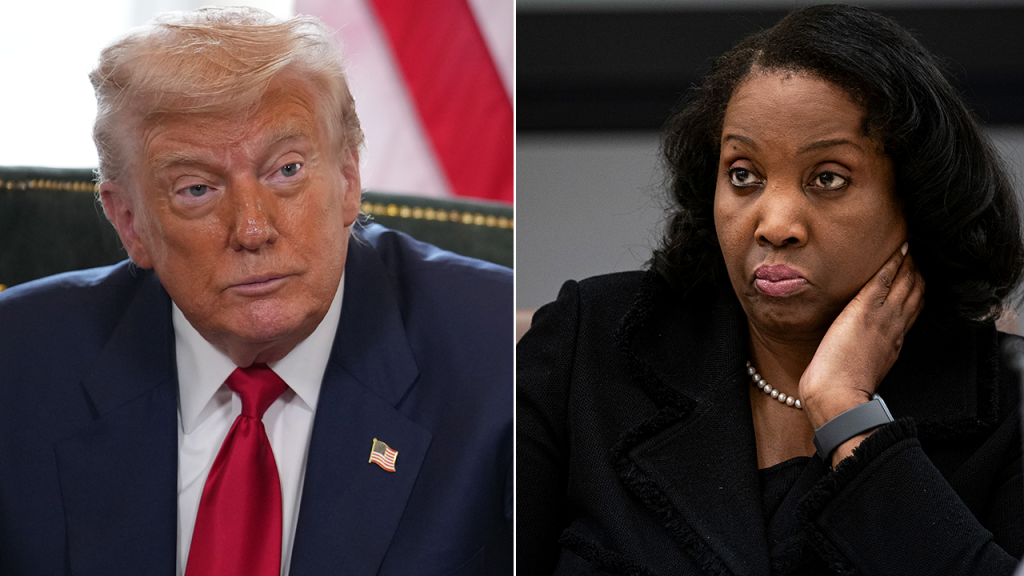Court Blocks Trump’s Attempt to Fire Fed Governor Lisa Cook Ahead of Critical Rate Meeting
In a significant development affecting both the Federal Reserve’s independence and the nation’s economic trajectory, the U.S. Court of Appeals for the D.C. Circuit has temporarily blocked President Donald Trump from firing Lisa Cook from the Federal Reserve Board of Governors. This ruling arrives just hours before a crucial two-day Federal Open Market Committee (FOMC) meeting set to begin Tuesday, where central bankers are widely expected to cut interest rates. The decision ensures Cook’s participation in this pivotal meeting, whose outcome will influence borrowing costs for everything from mortgages to credit cards, directly impacting every American’s financial situation. The White House has not yet indicated whether it will seek an emergency stay from the Supreme Court before the meeting commences, setting the stage for a potential constitutional showdown over the independence of the Federal Reserve.
The court ruling represents the latest development in an unprecedented legal battle that began on August 25 when Trump removed Cook from her position, citing allegations of mortgage fraud. Cook promptly sued the president three days later, naming Trump, the Federal Reserve Board of Governors, and Fed Chairman Jerome Powell as defendants. Her lawsuit centers on whether Trump satisfied the “for cause” provisions required under federal law to remove a sitting Fed governor—a legal question never before tested in court. U.S. District Court Judge Jia Cobb had previously issued a temporary block on Cook’s firing, stating that Trump likely violated Cook’s due process rights and noting that the Federal Reserve statute does not account for conduct that occurred before a governor took office, such as the alleged mortgage fraud.
The allegations against Cook originated with Bill Pulte, a Trump appointee to the federal agency that regulates Fannie Mae and Freddie Mac. Pulte connected Cook to three properties in Michigan, Georgia, and Massachusetts, raising questions about whether she had misrepresented how these homes would be used on mortgage applications filed in 2021—before her nomination to the Fed board by former President Biden. These allegations led to two separate referrals to the Justice Department, which opened a criminal investigation into Cook on September 4. Throughout this process, Cook’s legal team, led by attorney Abbe Lowell, has maintained her innocence, asserting in court filings that she “did not ever commit mortgage fraud.” Her lawyers have also emphasized the unprecedented nature of Trump’s attempt to remove her, arguing it lacked sufficient cause and could establish a dangerous precedent for dismissing members of independent federal boards.
The timing of this legal battle is particularly consequential, as it coincides with Trump’s broader push for the Federal Reserve to cut interest rates to stimulate economic growth. With most market watchers expecting the FOMC to announce a rate cut at the conclusion of its meeting, Cook’s voice in these deliberations could prove influential. The Federal Reserve’s decisions on interest rates have far-reaching implications for the economy, affecting everything from job growth to inflation and the cost of borrowing. By ensuring Cook’s participation, the appeals court ruling preserves the current composition of the rate-setting committee at this critical juncture, potentially influencing the size and scope of any rate cut.
Meanwhile, as this legal drama unfolds, the Senate has narrowly confirmed Stephen Miran to the Federal Reserve Board with a 48-47 vote on Monday night. Miran, who currently leads the White House Council of Economic Advisers, was nominated by Trump to fill the seat vacated by Adriana Kugler following her resignation in August. He will serve the remainder of Kugler’s term, which ends on January 31, 2026, and will also participate in the upcoming FOMC meeting. This confirmation gives Trump a fresh voice on the Fed board as he continues to push for monetary policy that aligns with his economic agenda.
The unprecedented challenge to a Federal Reserve governor’s tenure highlights the tension between presidential authority and the independence of the central bank—a principle long considered essential to maintaining market confidence and economic stability. Cook’s lawyers have framed this case as having implications far beyond her individual position, suggesting it could determine whether presidents can remove Fed governors without meeting a high standard of cause, potentially compromising the institution’s ability to make monetary policy decisions free from political pressure. As the courts continue to weigh these arguments, the outcome will likely establish important precedents regarding the separation of powers and the autonomy of independent agencies in the American system of governance.


